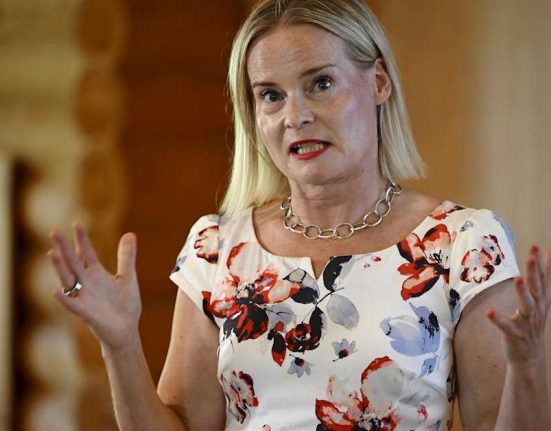If you bought a car before January 2021 using a car finance scheme, you could be owed compensation following an investigation carried out by the Financial Conduct Authority (FCA).
Before January 2021, lenders allowed brokers to adjust interest rates offered to drivers taking out PCP (personal contract purchase) and HP (hire purchase) car finance deals. This meant that brokers were able to charge higher interest rates, and in return would receive more commission. This was known as a discretionary commission arrangement (DCA).
The FCA banned DCAs from 28 January 2021, and it’s set to announce plans for a redress scheme. If you think you’ve been overcharged for your car finance, this will make it easier for you to receive compensation. The redress scheme may require lenders to contact anyone who was mis-sold finance and offer them compensation.
In a statement in March 2025, the FCA said: “Firms would be responsible for determining whether customers had lost out due to their failings, but the FCA would set rules that firms must follow under the scheme and introduce checks to ensure they do.”
We’ll make sure to update you as soon as this is announced. In the meantime, you can read our guide to find out if you’re eligible for compensation, the steps you need to take and how much you could be owed.
Read more: Is car finance right for me? A money editor’s guide
Am I eligible for compensation?
According to the FCA, you could be owed compensation if you purchased a motor vehicle using car finance before 28 January 2021. That includes cars, as well as vans, motorbikes and campervans.
However, this only applies to vehicles purchased using PCP or HP schemes, but not PCH (personal contract hire), aka leasing. You can find out more about the difference between these schemes in our expert round-up on car finance (link tbc).
Your car finance agreement will also need to include a DCA between the broker and lender. If you’re uncertain about this, you can ask the lender as part of your complaint. It’ll be on them to investigate whether a DCA was included.
How to complain about mis-sold car finance
While the FCA decides on a redress scheme, you can also complain to your lender if you think you’ve been overcharged.
When you get in touch with a complaint about hidden commission, make sure to include your name, policy number, date of your car finance agreement, vehicle number plate and the address you lived at when you took out the agreement. This should allow the lender to locate your details and avoid any unnecessary back-and-forth.
You should receive a response within a few weeks. If you don’t, it’s worth following up to check that the lender has received your complaint.
The FCA has given car finance providers a deadline for responding to complaints related to DCAs. This is to ensure that they have time to investigate the number of complaints. If you receive a response that leaves you unsatisfied, the next step is to take your complaint to the Financial Ombudsman Service (FOS), which is free.
Here’s when to expect a response from your loan provider:
- If you complained on or before 16 November 2023 and you’re yet to receive a response, you can take your complaint to the FOS.
- If you complained between 17 November 2023 and 10 January 2024, your provider has at least until 4 December 2025 to respond.
- If you complained on or after 11 January 2024, your provider has until 30 January 2026 to respond.
Here’s how long you have to raise a complaint with the FOS:
- If you complained before 17 November 2023, you’ll need to complain by the date in the final response from your car finance provider. If you didn’t get a response, you can still take your complaint to the FOS.
- If you complained on or after 17 November 2023, you’ll have until 29 July 2026 or 15 months from the date that the final response letter was sent.
How much compensation could I get?
The FCA is yet to set out its guidelines on redress, so we can’t confirm an exact number just yet.
As an example, an FOS case found that a driver was charged 5.5 per cent interest, when they could have been paying 2.49 per cent interest if the commission hadn’t been included. The lender was told to repay the difference, which amounted to £1,147, plus 8 per cent interest on each overpayment.
Lloyds Banking Group has already set aside £1.2bn to cover the potential costs of compensation.
Should I use a claims management firm?
Another option is to get a claims management company (CMC) to manage the complaint for you. However, it’s important to remember that you’ll be charged a fee if your claim is successful. The FCA has a cap on fees that a CMC can charge, and this will depend on how much you’re awarded, but you could end up paying up to 30 per cent in fees (exclusive of VAT) out of any compensation that you’re awarded.
The full breakdown of this is on the FCA website – it’s crucial to check this if you’re thinking about using a CMC.
Before you sign a contract with a CMC, it’s important to check that they are authorised by the FCA or a legal regulator. Each regulator has its own set of guidelines, so make sure they are adhering to these before you agree to anything.
As always, thoroughly check the terms and conditions, and if a firm doesn’t tell you that you have the option of lodging a complaint yourself for free, walk away.
Here are some CMCs that are authorised by the FCA. To find out how they they can help you claim back compensation and the fees that you may have to pay, use the links below.






